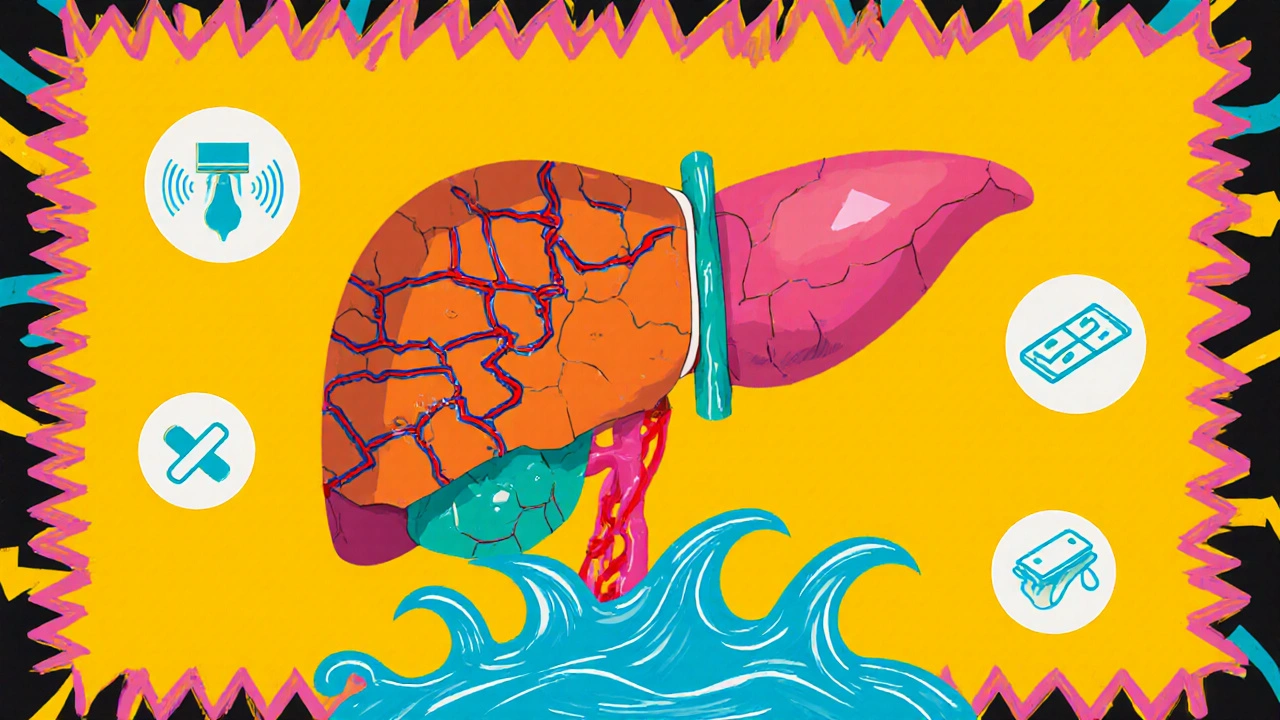Portal Hypertension: Causes, Risks, and What You Need to Know
When blood can’t flow easily through the portal hypertension, a condition where increased pressure in the portal vein restricts blood flow from the intestines to the liver. It’s also known as hepatic portal hypertension, and it’s not a disease on its own—it’s a sign something’s wrong inside the liver. This pressure builds up because the liver is scarred, swollen, or blocked, often from long-term damage like cirrhosis, a late-stage liver disease where healthy tissue turns to scar tissue. About 80% of portal hypertension cases come from cirrhosis, usually caused by alcohol abuse, hepatitis, or fatty liver disease.
As pressure rises, blood looks for other paths out of the intestines. That’s when dangerous side channels form—especially in the esophagus and stomach. These swollen veins are called varices, enlarged, fragile blood vessels that can burst and cause life-threatening bleeding. About 30% of people with portal hypertension develop varices, and half of those will bleed at least once if untreated. Another common result is ascites, fluid buildup in the abdomen, which makes the belly swell, causes discomfort, and increases infection risk. These aren’t random side effects—they’re direct consequences of the liver’s inability to process blood properly.
Doctors don’t just treat the high pressure—they look for the root cause. If it’s alcohol, stopping drinking is step one. If it’s hepatitis, antivirals might help. Diuretics are often used to drain fluid, and beta-blockers like propranolol can lower the risk of variceal bleeding. In severe cases, procedures like TIPS (a shunt placed inside the liver) or even a transplant may be needed. The key is catching it early. Many people don’t feel symptoms until something serious happens—like vomiting blood or sudden belly swelling. That’s why regular checkups matter, especially if you have liver disease or a history of heavy drinking.
What you’ll find below are real, practical guides that dig into the medications, tests, and lifestyle changes tied to portal hypertension and its complications. From how diuretics work to why varices form, and what to watch for if you’re at risk—these posts give you clear, no-fluff answers. No jargon. No guesswork. Just what you need to understand your condition and talk smarter with your doctor.
Portal Vein Thrombosis: Diagnosis and Anticoagulation Explained
Portal vein thrombosis is a serious but treatable condition. Early diagnosis and anticoagulation improve survival and recanalization rates. Learn how to diagnose PVT and choose the right blood thinner based on liver function and bleeding risk.
Chronic Liver Disease: Understanding Cirrhosis Complications and How to Manage Them
Cirrhosis is the advanced stage of chronic liver disease with serious complications like ascites, bleeding, and liver cancer. Learn how to recognize symptoms, manage risks, and improve survival through proven treatments and lifestyle changes.
© 2026. All rights reserved.


